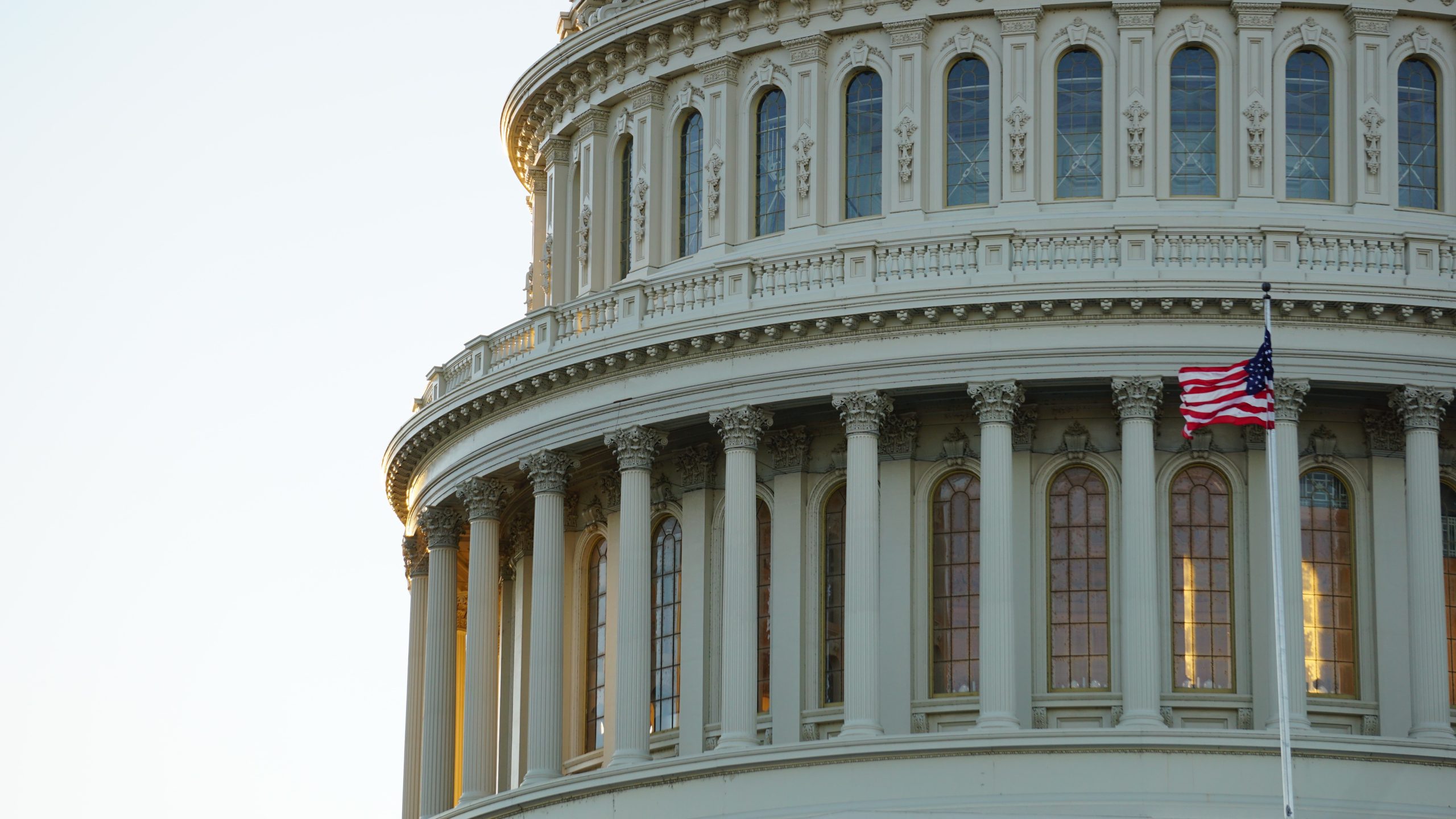By THE SOURCE NM: MEGAN GLEASON, AUSTIN FISCHER, DANIELLE PROKOB, AND SHAUN GRISWOLD
At the end of 2023’s legislative session, over 240 bills had passed. By the end of Friday, April 7, the last day for Gov. Michelle Lujan Grisham to sign legislation, more than 200 measures from the 60-day Legislative session became law.
Economy
- House Bill 2 & 3: The State Government Budget for Fiscal Year 2024
- House Bill 505: Capital Outlay Projects
House Bill 505 allocates $1.2 billion across thousands of capital outlay projects. Normally an uncontroversial piece of legislation, many Republicans lawmakers voted against the bill because it includes $10 million for a reproductive health care clinic.
- Senate Bill 309: Capital Outlay Reauthorizations
- House Bill 547: Tax Changes
- Senate Bill 3: Family Income Index Distributions Flexibility
- House Bill 8: Creative Industries Division
- House Bill 35: Free Cultural Services for Foster Families
- Senate Bill 41: Local Telecommunication Carrier Changes
- Senate Bill 50: Right to Repair Act
- House Bill 62: Limit Car Sale Locations & Sellers
- Senate Bill 69: Electric Bicycle Definitions
- House Bill 78: Aviation Fund Sales Tax Distribution Sunset
- Senate Bill 83/House Bill 170: Telecommunications Act ‘Cramming’ Definition
- House Bill 90: Defining Controllable Electronic Records
- House Bill 115: Home Inspector Licensing Examination Changes
- Senate Bill 143: Nonprofit Gaming Machine Payouts
- Senate Bill 146: Property Tax Valuation Protest
- Senate Bill 147: Tax Changes
- Senate Bill 155: Use of Telecommunications Fund for Broadband
- House Bill 160: Broadband Infrastructure
- House Bill 179: Filing Liens with Property Owner
- House Bill 186: Disabled Veteran Property Tax Proof
- Senate Bill 192: Additional Appropriations
- Senate Bill 200: Regional Water Project Purchasing
- Senate Bill 205: County Hospital Sales Tax
- Senate Bill 210: National Guard Death Benefit Act
- Senate Bill 216: Bankruptcy Exemptions
- Senate Bill 219: College Student Athlete Endorsements
- House Bill 229: Insurance Adjuster Bond Exclusion
- Senate Bill 223: Child Support Schedule Changes
- Senate Bill 240: Tax Exempt Organization Tax Audits
- House Bill 250: Corrections of Property Recordings
- House Bill 253: Nonprofit Gaming Changes
- House Bill 262: Transfer Broadband Grant Program
- House Bill 270: Emergency Suspension of Trucking Laws
- Senate Bill 271: Equine Definition
- Senate Bill 251: Metropolitan Redevelopment Code Changes
- House Bill 298/Senate Bill 332: Public Project Revolving Fund Appropriations
- Senate Bill 327: Allow Finance Authority to Approve Projects
- Senate Bill 336: Use of Racetrack Funds for Insurance
- House Bill 353: South Campus Tax Increment Development District
- House Bill 364: Alcohol Delivery, Licenses, Advertising
- House Bill 368: Pass-Through Entity Tax Credit
- Senate Bill 378: Severance Tax Fund Minimum Distribution
- Senate Bill 381: Housing Trust Fund Bonding
- Senate Bill 396: Motorcycle Registration Fee & Fund
- Senate Bill 402: Venture Capital Program
- Senate Bill 423: Finance Authority Operating Capital
- Senate Bill 433: Expand Rural Air Passenger Capacity
- House Bill 449: Displaced Worker Eligibility
- Senate Bill 452: Broadband Changes
- House Bill 459: Horse Breeder Award Increase
Yazzie-Martinez
Lujan Grisham signed legislation into law on April 5 that aims to strengthen tribal early education to better reflect standards for Native American students. This legislation is part of the Tribal Remedy Framework which presents solutions for the state to meet education reform mandates from the Yazzie-Martinez lawsuit. House Bill 148 requires that the N.M. Early Childhood Education and Care Department enter agreements with tribal communities, when requested by the tribal entity, about youth education programs, using culturally and linguistically relevant standards. It opens up avenues for tribal governments to access state funds for Pre-K programs.
- House Bill 127: Educational Assistant Salary Increase
- House Bill 130: K-12 Extended Learning
- House Bill 148: Early Childhood Department Tribal Agreements
- House Bill 198: Career Technical Funds for Indian Education Schools
- House Bill 199: Increase School At-Risk Index
- House Bill 280: Native Education Technical Assistance Centers
- House Bill 481: Align School Reading Materials
Education
- Senate Bill 20: Educational Retirement Board Changes
- Senate Bill 120: Open Enrollment for Military Children
- Senate Bill 131: Public School Funding Changes
- House Bill 145: New Mexico Military Institute Legislative Scholarships
- Senate Bill 188: State Aroma
- House Bill 191: Increase Early Childhood Fund Transfer
- House Bill 226: Instructional Materials & Procurement Code
- Senate Bill 307: Licensed Teacher Preparation Affordability
- House Bill 337: Early Childhood Department Background Checks
- House Bill 342: Education Savings Plan Uses
- Senate Bill 383: Public Education Background Checks
- House Bill 401: Rename Technology for Education Act
- Senate Bill 417: Vocational Teacher Licensure Track
- Senate Bill 450: School Coach CPR & AED Training
- Senate Bill 474: School District In-lieu-of-Taxes Payments
Environment & Climate Change
- Senate Bill 9: Create Legacy Permanent Funds
Millions were allocated for environment and cultural conservation efforts among different state agencies through creation of a Conservation Legacy Permanent Fund, which funnel money into a Land of Enchantment Legacy Fund for environmental work.
- Senate Bill 21: Prohibit Prescribed Burning During Red Flags
This bill bans prescribed burns when the National Weather Service sends out red flag warning alerts for extreme weather conditions like hot temperatures, high humidity and strong winds.
- Senate Bill 176: Acequia Fund for Disaster Response
Senate Bill 176 allows acequia and irrigation associations to use dollars from the state’s acequia and community ditch infrastructure fund for disaster recovery needs. The legislation as introduced would have doubled the annual amount in that state fund from $2.5 million to $5 million, but Senate Finance removed that.
- Senate Bill 58: Interstate Stream Commission Members
Aiming to diversify the Interstate Stream Commission, SB 58 adds more advanced expertise standards and require more geographic diversity throughout the state and Native nations, tribes and Pueblos.
- Senate Bill 1: Regional Water System Resiliency
- Senate Bill 6: Hermits Peak-Calf Canyon Fire Recovery Funds
This disaster relief measure was one of the first bills Lujan Grisham signed. She made it law on Feb. 20, making $100 million in zero-interest loans available for northern New Mexico political subdivisions recovering from the Hermits Peak-Calf Canyon Fire. Entities like counties and public acequias can apply to borrow the state money to fix up infrastructure, though the process can take months. Local officials later must repay the state once they get federal relief funds promised by the federal government.
- Senate Bill 26: Excess Oil & Gas Funds to Severance Tax Fund
- Senate Bill 53: Storage of Certain Radioactive Waste
- Senate Bill 72: Create Wildlife Corridors Fund
- Senate Bill 94: Transfer Rio Grande Trail Administration
- House Bill 95: Renewable Energy Division in State Land Office
- House Bill 142: Generating Facility and Mine Remediation
- Senate Bill 182: Recycling & Litter Reduction
- House Bill 184: State Game Commission Changes
- House Bill 195: Forest Conservation Act Amendments
- House Bill 197: Increase Free Fishing Days
- House Bill 228: Improvement Special Assessment Act
- Senate Bill 337: Water Security Planning Act
- House Bill 365: Geothermal Center & Fund
- House Bill 379: Prevent Local Bans on Refrigerants
- Senate Bill 392: Game & Fish Outdoor Youth Programs
- House Bill 525: Water Project Financing
Government & Politics
- House Bill 4: The New Mexico Voting Rights Act
For a state with some of the lowest voter turnout rates in the nation, the New Mexico Voting Rights Act makes it easier for different communities to vote. The legislation allows anyone convicted of a felony to vote once they have been released from detainment. It also enacts the Native American Voting Rights Act, which ensures that precinct boundaries are aligned with tribal political boundaries, allow voters, including those who are unhoused, to put down official buildings as addresses, expands early voting opportunities and sends more resources to county clerks’ offices. Other accessibility measures in the bill include requiring at least two drop boxes in every county and automatically registering New Mexicans as voters.
- House Bill 1: The ‘Feed Bill’
- House Bill 106: Increase Public Employee Pension Max
- Senate Bill 111: Temporary Suspension of Licensing Fees
- House Bill 116: Active Duty National Guard as State Employees
- Senate Bill 144: Santa Fe State Office Building
- Senate Bill 153: Publication of Supplemental Appropriations
- Senate Bill 160: Transfer Transportation Functions from PRC
- House Bill 161: Intertribal Indian Ceremonial Association
- House Bill 169: Disclosure of Legislative Ethics Complaints
People who file harassment complaints to the interim Legislative Ethics Committee can now speak about it at any time. People can now share details about issues like ethics concerns or harassment complaints; where before people who filed complaints could not talk about their experience. Lujan Grisham changed that by signing House Bill 169 on March 30.
- House Bill 180: Electronic Storage of State Records
- Senate Bill 180: Election Changes
- House Bill 181: National Board Certified Program Units
- House Bill 182: Add Camino Real as Official Spanish Paper
- House Bill 201: Licensing Boards Sunset Dates
- House Bill 207: Expand Human Rights Act Scope
- Senate Bill 206: Forestry Division Purchasing Exemption
- House Bill 240: Acequia & Community Ditch License Plates
- Senate Bill 246: Uniform Law on Notarial Act
- Senate Bill 250: Firefighter Survivor Benefits
- House Bill 268: Allow Land Grants to Seek Formal Status
- House Bill 274: American Asian, Pacific Islander & Hawaiian Day
- Senate Bill 280: Cybersecurity Act
- House Bill 287: Driver Safety Awareness License Plates
- House Bill 299: Elevator Safety Act
- House Bill 304: Public Employee Retirement Needs Trusts
- Senate Bill 315: Interstate Compact on Child Placement
- Senate Bill 324: County Assessor Certification Pay
- Senate Bill 335: Delay Part of Local Election Act
- Senate Bill 351: Legislative Council Members in Interim Committees
- House Bill 360: FFA License Plates
- House Bill 366: Additional Disabled Veteran License Plates
- Senate Bill 364: Legislative Stationary Prohibitions
- House Bill 377: $50M for Marketing Excellence Bureau
- House Bill 384: Social Worker & Veterinarian Licensure
- Senate Bill 389: Tourism Sports Authority Division
- House Bill 411: Engineer & Surveyor Licensure
- House Bill 424: Apprenticeship Council Authority
- Senate Bill 442: Raises for Statewide Elected Officials
- House Bill 462: Nuisance Penalties & Procedures
- House Bill 466: Ethics Commission Jurisdiction
- Senate Bill 468: Dolores Huerta Day
Health
- House Bill 7: Reproduction and Gender-Affirming Health Care
Signed into law on March 16, House Bill 7 prevents government bodies or individuals from interfering with or discriminating against someone’s access or use of reproductive or gender identity health care. This legislation was the first reproductive rights-related measure to make it through the Roundhouse, one of Lujan Grisham’s top priorities this session.
- Senate Bill 13: Reproductive Health Provider Protections
Senate Bill 13 protects medical providers and patients who are getting abortion or gender-affirming health care services.
- Senate Bill 7: Rural Health Care Delivery Fund
Sen. Liz Stefanics (D-Cerillos) hoped the Rural Health Care Delivery Fund bill could help fill holes in specialty health care in rural New Mexico. This legislation allows providers in rural areas to apply for grant funding to start up new facilities or expand those that already exist.
- Senate Bill 4: Healthy Universal School Meals
- Senate Bill 16: Creating New Mexico Health Care Authority
- Senate Bill 17: Dental Insurance Changes
- House Bill 27: Breast Exam Health Coverage
- Senate Bill 35: Anesthesiologist Assistants Changes
- Senate Bill 51: Drug Prices for Clinics, Hospitals
- House Bill 53: Delivery of Necessary Diabetic Resources
- Senate Bill 71: Organ Donor Discrimination
- House Bill 73: Biomarker Testing Insurance Requirements
- House Bill 75: Chiropractic Services Insurance Coverage
- House Bill 79: 3-Year Insurance Premium Rate Hearings
- Senate Bill 81: Immunization Information Certification
- House Bill 83: Eliminate Podiatry Board
- Senate Bill 92: Pharmacist Scope of Practice
- Senate Bill 106: Pharmacists and Physicians Assistants as Health Care Practitioners
- House Bill 131: Prohibit Insurance Company Discrimination on Basis of Disability
- Senate Bill 132: STI Prevention & Treatment
- House Bill 134: Menstrual Products in Public School Bathrooms
Students will soon have access to free menstrual products in public schools after Lujan Grisham signed House Bill 134 on March 30. The legislation requires that products must also be in at least one boy’s bathroom in public schools.
- Senate Bill 168: Death Pronouncements by Nurses
- Senate Bill 181: Opioid Antagonist Warning Requirements
- House Bill 209: Health Professional Loan Repayment
- Senate Bill 224: Medicaid as Mandatory Medical Child Support
- Senate Bill 232: Health Insurer Provider Info. & Reimbursement
- Senate Bill 242: Medical Cannabis I.D. & Renewal
- Senate Bill 245: Rural Emergency Hospital Licensure
- House Bill 255: Employee Leasing Benefit Plans
- Senate Bill 260: Developmental Disability References
- House Bill 267: Health Standards for Driver’s Licenses
- Senate Bill 273: Mental Health Coverage
- Senate Bill 310: Crisis Triage Centers
Lujan Grisham signed Senate Bill 310 on April 4, allowing law enforcement to bring people to a crisis triage center for a mental health exam instead of strictly to jails or hospitals. Police could bring people there involuntarily, and licensed medical professionals could treat people in crisis.
- House Bill 370: Database of Out-of-network, Surprise Medical Bills
- House Bill 395: Developmental Disability Provider Reimbursement
- Senate Bill 397: School-Based Health Centers
- House Bill 400: State-Administered Health Coverage Plan
- House Bill 407: Disposition of Deceased Next of Kin
- Senate Bill 425: County Detention Facility Treatment Programs
- House Bill 446: Long-Term Care Facility Dementia Training
- Senate Bill 471: Refusal of End-Of-Life Options Act
- Senate Bill 485: Non-Emergency Medical Transportation
- Senate Bill 523: Medical Malpractice Changes
- House Bill 527: Opioid Settlement Restricted Fund
- House Bill 533: School Group Insurance Contributions
Police & Prison
- Senate Bill 64: Second Chances for Children Sentenced as Adults
New Mexico is the 27th state to abolish life without parole as a sentencing option for children sentenced as adults in the state’s criminal legal system. SB 64 also provides developmentally meaningful opportunities for hearings before the Parole Board either 15, 20 or 25 years into an adult sentence given to a child.
- House Bill 9: Unlawful Access to Firearm by Minor
Lujan Grisham signed Bennie’s Bill into law on March 14. This legislation makes it a crime for anyone to make a firearm negligently accessible to a minor. If the minor accesses the weapon, it’s a misdemeanor, and if they hurt themself or others, it’s a fourth-degree felony.
- House Bill 15: Special Immigrant Juvenile Humanitarian Relief
- Senate Bill 19 and 252: Police Use of Force & Telecommunications
- Senate Bill 29: Medical & Geriatric Parole
- House Bill 31: No Publication Required for Name Changes
- Senate Bill 31: Guardianship Changes
- House Bill 40: Nontraditional Communication Registry
- Senate Bill 43: Intimidation of Election Officials
- Senate Bill 47: Driver’s License Suspension Penalties
- Senate Bill 68: Electronic Motor Vehicle Documents
- House Bill 76: Judicial Education Services Fund & Administration
- Senate Bill 102: Improper Use of Travel Lane
- Senate Bill 107: Child Custody Hearings
- Senate Bill 133: Catalytic Converter Sales Records
- House Bill 139: Eliminating Court Fees
- House Bill 141: Concerns of Police Survivors License Plate
- Senate Bill 145: State Police Retirement Changes
- House Bill 175: Crime Reduction Act Changes & Fund
- Senate Bill 215: Establish Crime of Bestiality
- House Bill 232: More Police Exemptions under Sunshine Law
- House Bill 234: Creating New Crime of Organized Retail Crime
- Senate Bill 248: Probate Court Changes
- House Bill 269: Federal Information for Commercial Driver’s Licenses
- Senate Bill 302: Judicial Standards Commission Oversight
- House Bill 306: Purchase of Firearms for Another
- House Bill 314: Cannabis Record Expungement
- House Bill 357: Law Enforcement Workforce Building Fund
- Senate Bill 368: Police Body Cam Exceptions
- Senate Bill 388: Age Limit for Children in Custody
- House Bill 389: No Identification Card for Homeless Individuals
- Senate Bill 491: Health Premium Tax for Police
The governor vetoed the following:
- House Bill 118: Create Office of Entrepreneurship
- Senate Bill 157: Sales Tax Distribution to Hobbs
- House Bill 233: Regulation & Licensing Department Reorganization
- Senate Bill 292: Carlsbad/Eddy County Sales Tax
- House Bill 309: Nonprofit Gaming Machine Max Award
- Senate Bill 357: Children Working in Performing Arts
- Senate Bill 464: Agritourism Promotion Act
- House Bill 125: Study Dual-Credit Courses
- House Bill 126: Graduation Requirements
- House Bill 216: Expand Legislative Education Study Committee Scope
- House Bill 363: Smokey Bear License Plate
- House Bill 512: Exempt Counties from Property Sale Requirements
- Senate Bill 382: Bioscience Fund Reversion, Investment
- Senate Bill 2: Judicial Salary Increases
- Senate Bill 84: Technical Parole Violation Reform
- Senate Bill 187: Take Drug Possession off Habitual Offender Law
Bills, which Gov. Lujan Grisham did not sign, are considered “pocket vetoed” (i.e. The governor could not return the bill to the legislature, and the legislature did not have the opportunity to override.) These are:
- House Bill 165: Uniform Unclaimed Property Act
- Senate Bill 178: Tobacco Fund Not a State Reserve Fund
- Senate Bill 521: 1 Percent Raise for State Employees
- House Bill 189: Educational Retirement Changes
- House Bill 375: Charter School Expenditure Plan
- Senate Bill 136: PRC Commissioner Salaries
- House Bill 345: Firefighter Recruitment
- Senate Bill 398: Public Housing Authority Officers
- Senate Bill 117: Prescribing Psychologist Practice Act
- Senate Bill 203: Developmental Disabilities Data
- Senate Bill 426: Civil Rights Division in Attorney General’s Office



